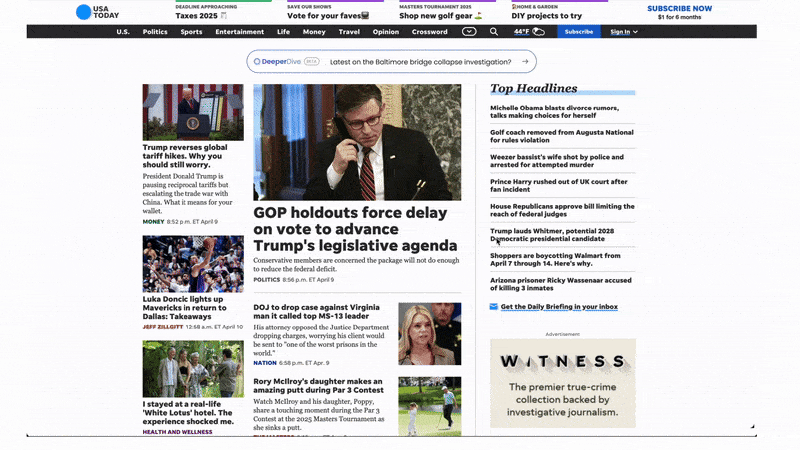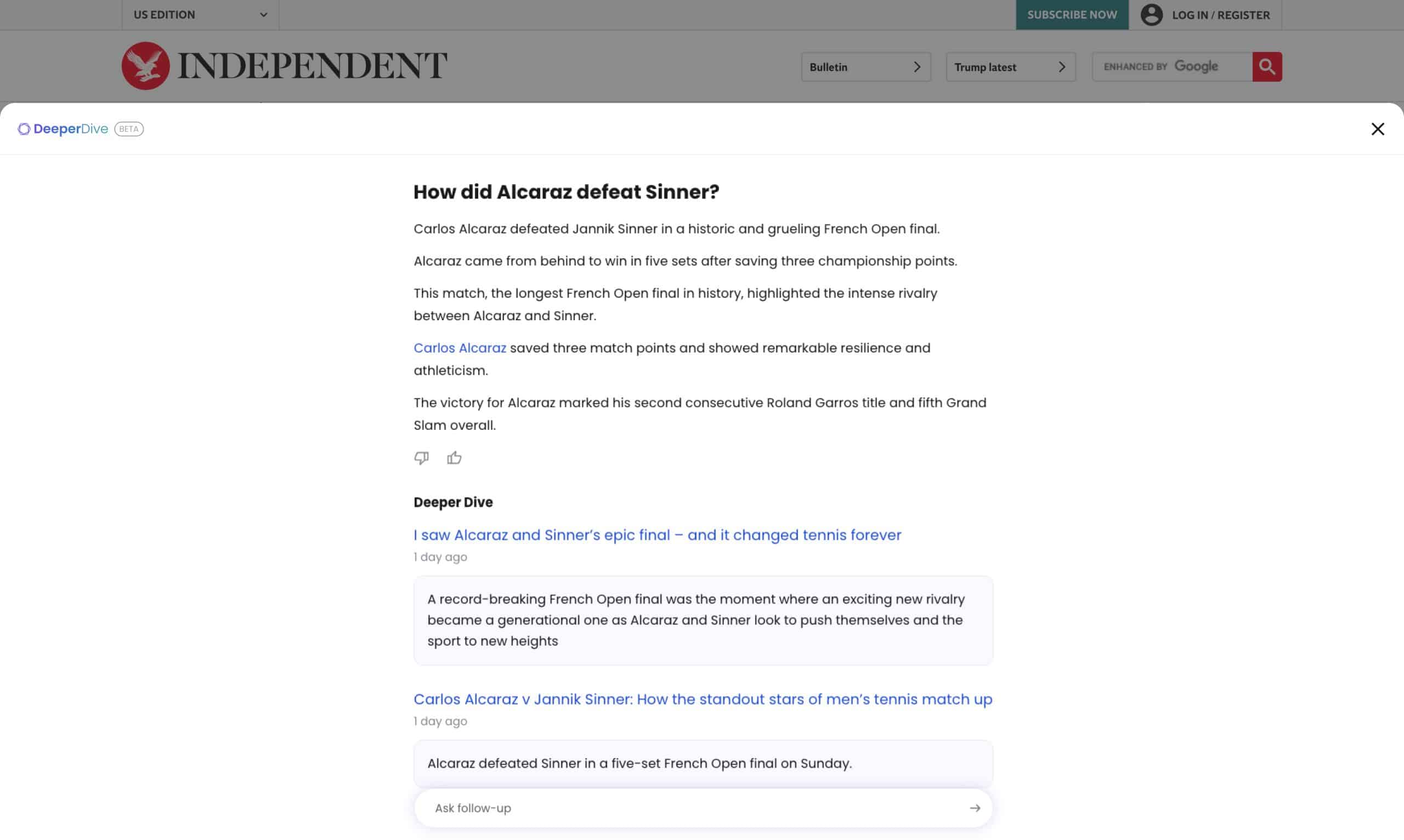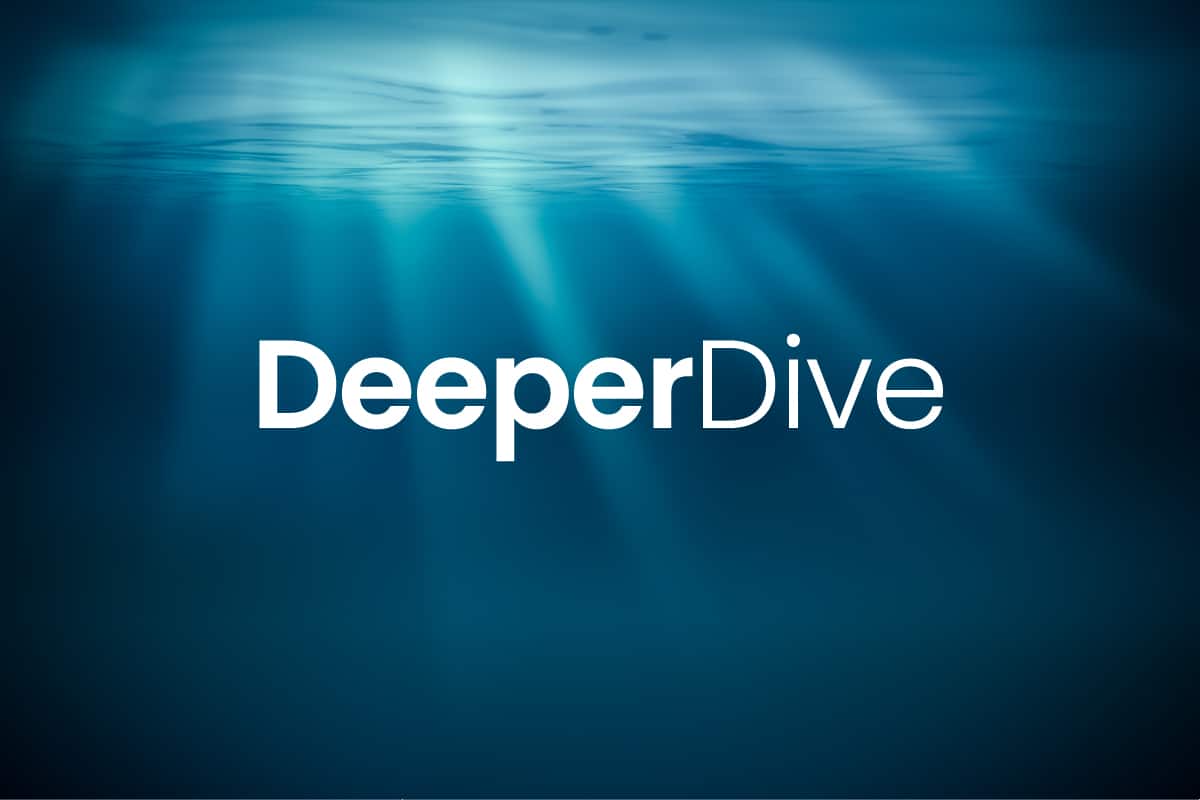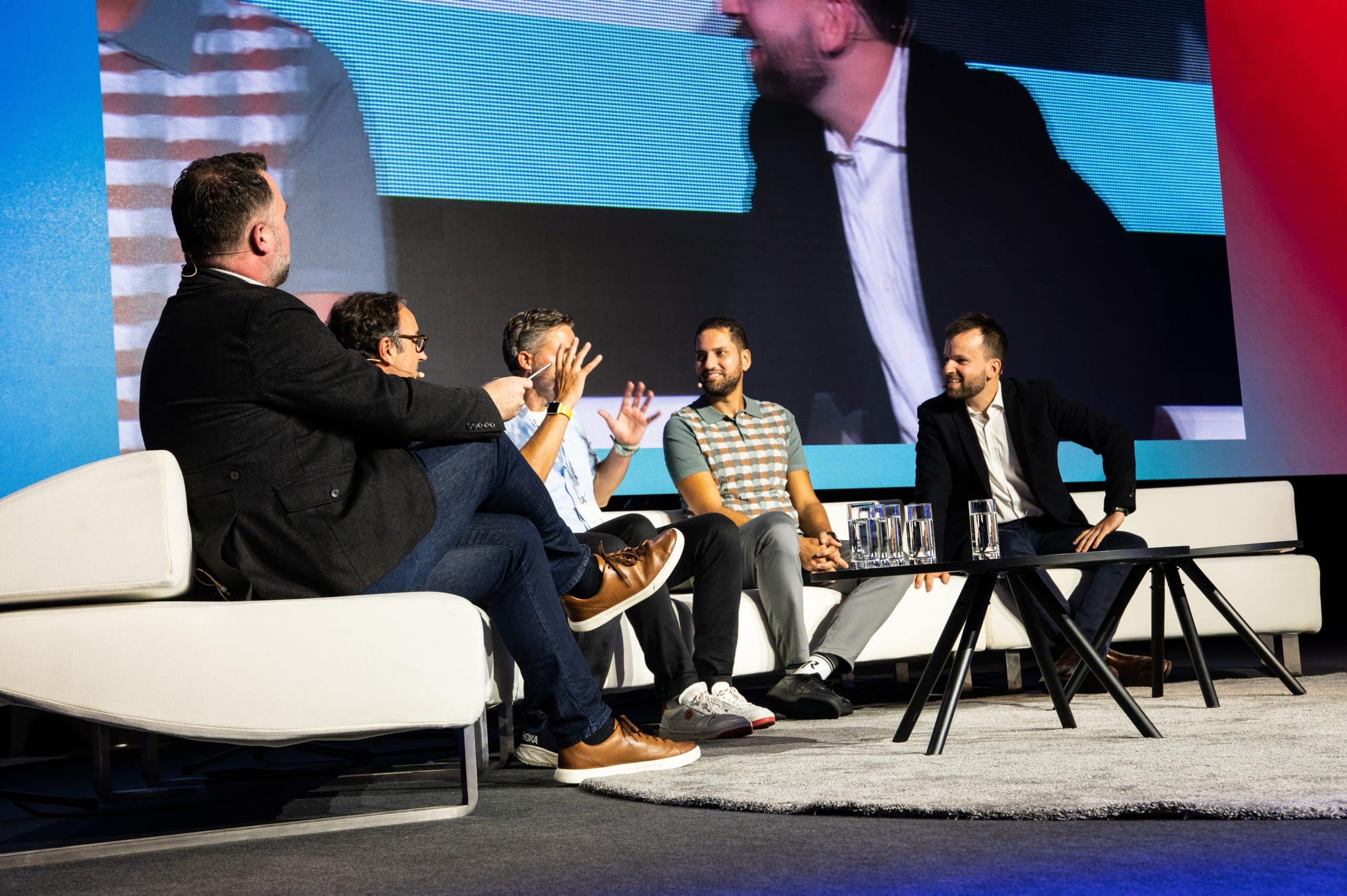The mainstreaming of generative AI has proven transformative within just a few years. As reported by eMarketer, the number of U.S. generative AI users surged from 7.8 million in 2022 to 100.1 million in 2024, a more than 12-fold increase in just two years. Usage is projected to climb even further, reaching 127.2 million by 2026, representing a total user growth of approximately 1,530.8% from 2022.
GenAI has so much promise. And it’s true, it’s one of the biggest revolutions we’ve seen in decades. However, there are three glaring gaps in how the GenAI Search industry is unfolding that are too important to ignore.
1. GenAI engines don’t want you to leave and learn more about a topic.
When you ask a question on ChatGPT or Perplexity, you get a clean, convenient answer, but you miss the bigger picture. You don’t get to explore diverse coverage, read what real journalists are reporting, watch videos that bring a story to life, or understand how opinions and facts shift over time. Why? Because these platforms don’t want you to click away. In fact, according to Similarweb data shared with Press Gazette, ChatGPT referred less than 0.1% of all traffic to top publisher sites in January. They’re the new walled gardens, just like Meta before them.
That might be fine if you’re asking how to remove a coffee stain or do a quick calculation. But if you’re trying to understand something that matters, like a health concern, a financial decision, or a product you’re considering, one answer isn’t enough. Often, it’s not even close to the truth.
This idea that people should just “get the answer and move on” is flawed and dangerous. Sometimes, we need to dig deeper, explore different views, and actually learn something meaningful. Looking into the future of GenAI, I don’t want my kids learning about the world from an overly simplified, single-source summary. I’d rather they discover, compare, and think for themselves.
2. GenAI engines are built on stolen content.
GenAI engines scrape the web and summarize articles created by real journalists at trusted publishers. These engines rarely send traffic back to the original source, and even more rarely pay anything for the information. This model doesn’t reward the creator, it exploits them. Business models that don’t support the people doing the work are evil, and are a short-term strategy.
Sure, some licensing deals are being made, but we’ve seen this movie before. Most publishers don’t get paid. Those who get paid originally often don’t get paid again. And most importantly, even if publishers don’t renew their deals with these GenAI engines, we all know that there’s no real mechanism to “take it back”, or purge the publisher’s information from the model. It’s absorbed. It’s gone.
3. GenAI doesn’t exist yet where it should: on trusted publisher sites.
Today, GenAI is available through platforms like ChatGPT and Perplexity. But imagine if that same functionality was available where it actually belongs, on trusted publishers’ sites.
What if you could ask a question directly on USA Today’s Travel section, one of the best in the country, and get an answer rooted in real reporting, by journalists who’ve actually been to those destinations? What if you could ask a reporter you trust what they think about a story, and hear their informed insights, not a generic summary?
It’s far more accurate to ask your local TV station why grocery prices are rising in your town than to rely on ChatGPT’s generalized output. It’s more reliable to turn to a global news brand for an international take on a breaking headline and get diverse points of view on your questions.
GenAI engines don’t belong behind closed doors. GenAI belongs where people already go to learn, decide, and discover, inside the trusted publishers they rely on every day.
Introducing DeeperDive
DeeperDive brings the power of GenAI to the most trusted publishers in the world.
When you ask a question to DeeperDive, you get a concise, helpful summary, and then are prompted to go deeper. To click. To read. To watch content on the site you’re on. To explore multiple informed viewpoints from journalists, creators, and experts. DeeperDive combines the best of GenAI’s conversational abilities with the richness of the open web, where “Google blue links” aren’t buried, but celebrated as pathways to knowledge.
What sets DeeperDive apart is its connection to the Pulse of the Internet. The web isn’t static; it’s alive, and driven by what people are reading, clicking, and sharing right now. Just like Grok is powered by X’s real-time tweets, which is what makes Grok perhaps one of the best GenAI engines out there, DeeperDive is powered by something only Taboola can provide: real-time readership signals from thousands of publishers, surfacing what people are reading about in New York, Paris, Tel Aviv and beyond. Built on the infrastructure that powers homepage recommendations, recirculation, and advertising for the open web, DeeperDive is the next frontier: GenAI grounded in trust, timeliness, and truth.
Why This Matters For Publishers and Users
Publishers who adopt DeeperDive aren’t just keeping up with the GenAI revolution — they’re leading it, on their terms.
Today, I’m proud to announce DeeperDive in partnership with two incredible leaders: Mike Reed, CEO of Gannett and USA Today, and Christian Broughton, CEO of The Independent.

With DeeperDive, publishers unlock two massive opportunities:
1. Deeper Engagement
We’re creating a new user habit, one where readers lean in, ask follow-up questions, and stay to explore. Our goal? To grow time spent on publisher sites from 90 seconds a day to 30 minutes. Not just scrolling, but learning, discovering, and deciding, powered by trusted journalism and the dynamic pulse of the open web.
2. Future Revenue Streams with Commercial Agents
I believe the potential monetization opportunity in GenAI isn’t just in subscriptions or traditional ads. It lies in the possibility to surface high-value agents across categories where users demonstrate real intent: travel, finance, sports, commerce, and more.
Imagine a future where a user asks DeeperDive about a travel destination and doesn’t just get an answer, they receive a curated offer for an airline ticket or rental car. Or they ask about the Knicks and are presented with ticketing, streaming, or betting options seamlessly integrated into the experience. That’s the shift from 50¢ CPCs to $500 intent-driven conversions.

This is the kind of opportunity I believe Google is exploring with Gemini, and it’s one that trusted publishers could unlock soon with DeeperDive.
The future of GenAI doesn’t belong to platforms alone. It belongs to the open web, and to the publishers who power it.
One Last Thing
GenAI engines aren’t here to help people, they are here to trap them. They’re the new walled gardens, dressed up in friendly UX and short answers. Built to keep users in, and the open web out. They don’t want you to explore different informed insights, to read something by a real journalist, a real human, because that’s not how their models win.
Here’s the good news: that’s Taboola’s opportunity. Now bigger than ever.
This is the moment for the open web to rise. For publishers to go on offense. To serve audiences not with shortcuts, but with substance. To build trust, depth, and discovery into every interaction. Because the future can’t be a world where our kids make decisions about their health, their vote, or their lives based on a sentence or two written by a machine, trained on yesterday’s scraped content.
Don’t let a chatbot raise your kids. I prefer mine use DeeperDive, not “Simplexity.”
It’s time to go deeper. And that’s exactly what we’re doing.
DeeperDive: Trusted Answers. Insights That Matter.


